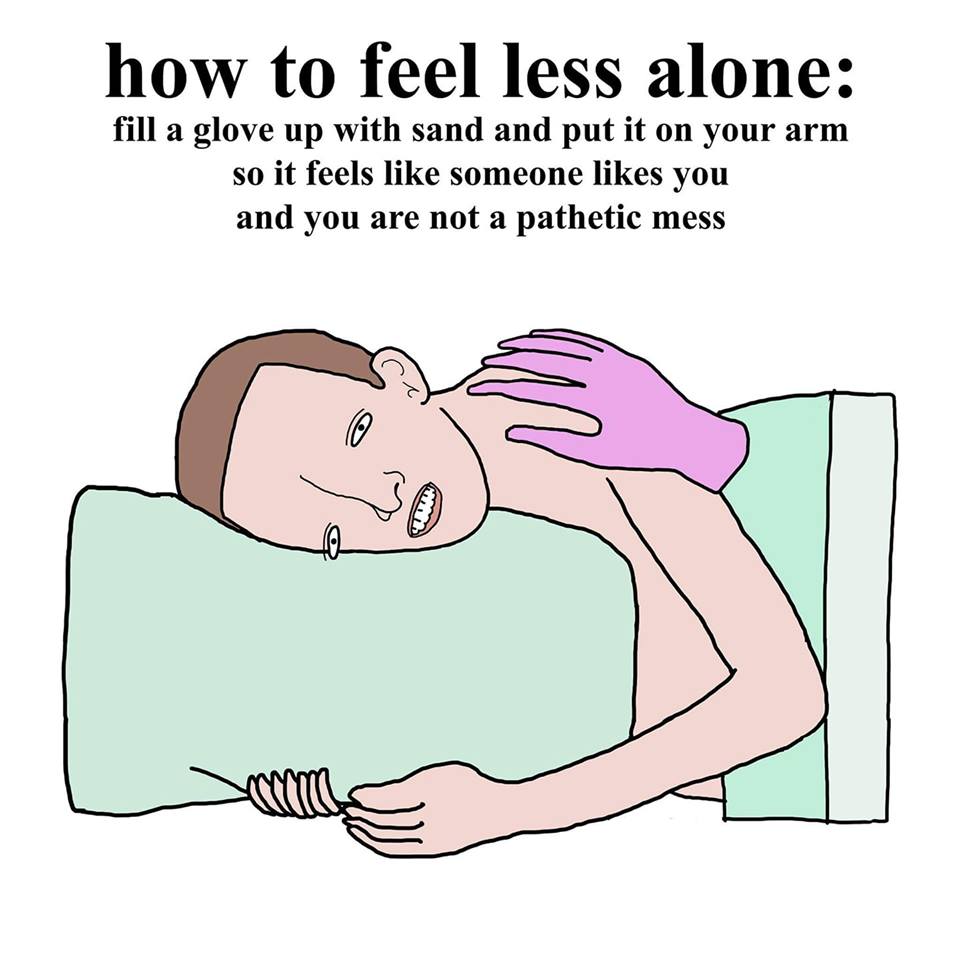Methods and Reasons
This is not a pro-suicide essay. This is a pro-empowerment and a call for rationality regarding mental illness and suicide essay, along with ways to get help. The links section at the top of this page has resources to guide you to that help. Psych Central has a very supportive message board. There are no counselors, just people who are struggling with mental health-related issues or at least used to be and now want to help others. As such, it is not a good resource if you are in crisis. There are also lots of articles written by professionals that may be of some help. There is also good support for people who have loved ones that are suffering. The next link is a directory of therapists in your area(the US only). The other links below it are for people in crisis. Always try to get help before doing anything drastic. There is also the emergency room if you really need to see someone face-to-face immediately.
The mentally ill face many obstacles. Some of their own making and some caused by others. Perhaps the worst, most degrading things are people helping out of good intentions. I often wonder about their motivation. Is it because the mentally ill person is scaring them, and the “helper” is acting out of fear that they might feel bad? It can not be out of concern. What kind of person wishes that another continues to suffer? It is certainly not a kind person.
We hear all the time about a cancer patient or someone suffering another deadly disease passing away. People say, “At least they are not suffering anymore.” Why is severe mental illness treated differently? If a mentally ill person died from their disease, it is almost always, “they took the cowards way out.”
Why?!?
Mental illness can be treated, and all reasonable efforts should be made in that direction. This presents serious problems - psychiatry is a pseudo-science and when does mental illness become terminal? Mental health workers do not know and will not admit that it does. Not ever. There has to be a point where it does. All illness that leads to death has a point where the patient has no other options and will die. There is no logical reason why mental illness is any different in this regard than cancer.
Cancer is often treatable, but at some point, it can get past the point of no return, and the patient is given medications to ease the pain and anxiety. In seven states, they can legally find a doctor to prescribe medications, so they can go out peacefully and on their terms. I live in such a state.
These ‘assisted suicide’ laws specifically omit the mentally ill. I have to wonder if a severely mentally ill person with stage 4 pancreatic cancer would be forced to suffer to the end because of the mental illness. The law in my state says, “Medication to end a patient’s life in a humane and dignified manner shall not be prescribed until the person performing the counseling determines that the patient is not suffering from a psychiatric or psychological disorder or depression causing impaired judgment.1”
People with severe, unending mental illness are yet again left to fend for themselves. If they choose to leave this life they have to resort to methods that are painful and not always lethal. Some will survive it and end up permanently hurt or disfigured and forced to live an even worse life. Whether or not suicide is successful, there is no dignity in it. Usually, there is a lot of suffering. The people left behind have a terrible mess to clean up and traumatic memories of a horrifying death.
Conversely, people who can choose to leave with dignity do not leave their loved ones behind with trauma.
What if the person is severely mentally ill but can mostly get by reasonably happy but is in a long-term downtrend with no successful treatment? What if this person has many physical issues that are degenerative that have no cure available? Those can be extremely painful but not by themselves deadly. Someone in this position is guaranteed to have a painful life and may have to look forward to decades of pain. No one cares. Doctors make it worse by making it nearly impossible to get appropriate pain care.
It would be hilarious if the end result wasn’t so damaging.
This is a very nuanced situation, and as a rule, Americans are really bad at nuance. Issues in this sad and backward country are black and white. They willfully ignore the grey areas, and many people suffer for it. Whether the issues are assisted suicide, or health care legislation, or welfare reform; people stuck in grey areas get crushed. No one seems to care.
This essay will not list specific methods of suicide or their efficacy.
Instead, a more useful approach might be to delve into reasons, from a mentally ill person’s perspective, why they believe their condition is terminal and is it really? What symptoms make it too painful to bear? Given these reasons, is it justified, moral, or sane to take away their choice and dignity?
First, it is important to note that no one knows for sure what causes most mental illnesses. The theory about brain chemistry out of whack is just conjecture, albeit with some evidence. There are no tests to confirm bipolar or depression or psychosis - outside of actual brain damage, which is a very uncommon way to get mental illness - at least not yet. Sometimes psych meds work, sometimes they do not. Sometimes, they do more damage than the illness. The prescribing psychiatrist is just guessing at what medications will help. The consequences if he is wrong can be devastating. What is worse is that usually, the guess is not even an educated guess. If you have a doctor that will order pharmacogenetic testing for you, then it can be considered an educated guess, but it is still a guess.
A second important fact: therapy is hit or miss. There are many variables. Is the therapist a good match for the patient? Does she understand the issues that the patient is facing? Does the patient understand that they need help? If the patient can not see their illness, therapy is useless. When they can not see it, it is often impossible to get them to admit there is a problem, like in treatment for drug addiction, it doesn’t work without patient buy-in.
Thirdly, this is focusing on people with longstanding debilitating mental illness and not on people who are suffering in a temporary state such as loss of a job or a bad breakup. This is not to minimize their suffering, it is real and painful, but it is by definition situational and temporary. As much as the clowns who wrote the DSM-5 wish it, situational depression is not cured by a lifetime of meds. When the situation changes, so does their suffering. This could be equated to someone breaking a leg and someone who has a treatment-resistant mental illness with a chronic condition.
The initial cause, whether known or unknown, is irrelevant here. What is relevant is the treatment-resistant nature of it and the person’s reaction to said illness.
So what reasons do people have for killing themselves? Some are based in reality, sometimes not. Either way, the pain, and hopelessness are very real.
I am uncomfortable trying to speak for others. This will be from personal experience or from reading message boards, or from groups.
Previous horrors inflicted on the person. Whether they were in combat or subjected to terrible things as a child or even an adult, this can lead to difficult-to-treat symptoms that the person never really gets over and is constantly fighting the pain, feelings of hopelessness, and worthlessness. Other things like developing dissociative identity disorder(DID) are possible. I know a young lady that fits into this category, and the struggles she goes through every day are terrifying.
In short, the issues that caused the mental illness feed on themselves and not only make things worse, but they can also cause new problems.
A person with a mental illness of any kind or severity can face setbacks or tragedies in life that exacerbate it. This could be a failure in one’s life or tragic death, or otherwise losing an important person. Many people suffering from MI have a very low tolerance for any kind of emotional pain. It can set them in a tailspin. The pain gets too much, and they get in a crisis that they might not be able to pull out of without a support system.
It is a nasty cycle that is difficult to break out of even with a good support system.
Loneliness certainly can make things much worse, and if they are lonely, they likely have zero support around them. I can honestly say that my lowest points, including when I needed to be hospitalized were caused by exactly this. This was what started it, but lots of other things joined in to beat me down.
Abandonment causes PTSD symptoms in me. I believe it is caused by issues in childhood and made worse by a lifetime of rejection.
Here are a few symptoms:
- Feeling hopeless
- Destroyed self-esteem
- Extreme anxiety
- Sleeping one or two hours and being awakened by panic attacks
- Drained of energy
- Losing the desire to do anything
That is just the beginning, and it is unending.
The worst is feeling empty and cold, even when surrounded by beauty and joy and sitting outside in the heat.
Loneliness eventually causes the depression to start to feel so heavy. Added with the emptiness, it brings even more depressing thoughts, and it eventually becomes overwhelming.
Then it gets bad.
I believe spending a lot of time alone has worsened the anxiety. It is also the cause of my psychosis and the reason it comes back. When I am with someone, especially someone I feel very close to, my anxiety is noticeably better, and I don’t see or hear things that are not there as much.
All of these things are difficult for everyone. A loss of a relationship or job can make a normal person depressed. It can do the same for a depressed person, and that is bad. Adding depression to depression has a negative exponential effect in my experience.
How to tell if someone needs help
There are many warning signs, too many to list here, but I will list those that I feel are more dangerous, but all can be dangerous depending on the person.
- Giving important things away
- Talking about a future without them
- Verbalizing hopelessness
- Too much or too little sleep
- Becoming reckless with behavior, drinking, etc
- They have a history of MI and they lose their home, job, significant other, parents, children, etc
- Talking about methods of suicide
- Withdrawing from everyone
- Making plans for people around you in a manner that suggests they will not be around
The biggest thing is that there is a noticeable negative change. Many people with mental illness often talk about killing themselves or being anxious or having crappy sleep.
When those things get worse, pay extra close attention.
An example is withdrawing. If the person is normally withdrawn but then shuts out the few people they talk to, get help.
The last one on the list might entail writing down all the bills, mortgage company, etc. Other examples: making plans to hire a realtor to sell their house, making funeral plans for themselves - especially when they do not have a terminal illness and are younger when that is normally done.
How to tell if you need help
This can be difficult because the signs others can see, you might not be able to. One thing to remember is that suicidal thoughts and suicidal intent are sometimes different. When I used to see a shrink, he would always ask if I think about killing myself. I always say yes (honesty is always important but doubly so for this), and they never bat an eye. The next question is, “do you have a plan.” I said yes once (again, honesty!) and spent 8 days in a psych ward.
I have a lot of the warning signs almost constantly. It is part of my thought process and does not mean anything other than today is a normal day.
The best way to understand what is happening is to pay attention to what you are thinking, doing, and saying. If they are out of line with whatever is normal for you, get help! If you are building up inside and are losing control, get help right now!
Okay, I am suicidal, what now?
This is the tricky part and why lawmakers are too afraid to add chronic mental illness to the list of acceptable conditions. If I am at this point, is my decision rational? Probably not, but the pain is real, and it may not be permanent but could last months or years, so what to do?
Except in extreme cases, I do not believe that people with MI should lose rights because of their illness. There are people with very little self-awareness that could never make any rational decision about anything, most of the time. The vast majority of mentally ill people are not that way.
I also believe that we should try as hard as possible to not do it. I hate the argument people lay on me about how they and others will miss me. In my lowest points, that feels so manipulative.
It takes a lot to get me visibly angry. When I am doing bad enough, that will do it. On the other hand, if I think of my children, siblings, or girlfriend wanting to kill themselves, I would feel the same way as those annoying people telling me that their feelings are more important than my pain. It is always useful to look at things, no matter the context, from as many viewpoints as possible.
My rule and I follow it no matter how bad I am feeling, is to try to get help, even passively, and then sleep on it. By passively, it could mean taking the quiz at the veterans’ crisis website described below. Or it could mean taking a walk most or all of the night. Sometimes I try to reach out to family or my only friend, although when I am suicidal I do not ask for help or tell them I want to die.
That will trigger an avalanche of concern, anger, and sometimes indifference, which often makes me worse. It is more like “If you have a little time, want to chat” or “I would love to hear your voice”. Even if they do not respond, just reaching out to someone makes me feel a little connected. I was taking a walk in the middle of the night recently, and sending a message saved me that night. I did not even get a response.
I find it amusing that a panic attack will elicit a stronger response than a cry to save me from killing myself. To be fair, I am very vocal during a panic attack and just sound whiny when I am suicidal. Okay, I am whiny during a panic attack, but the vocal part stands. That is funny to me. Especially when considering that a panic attack just needs a few soothing words and encouragement to take a benzo and go to sleep.
Sometimes, it means watching a funny movie. If I can laugh, I am not doing so bad. Well, that is the theory. For me, it is really dumb movies that make me laugh. “Better off Dead”, “Ace Ventura,” “Dumb and Dumber”. “The Pest”. “UHF”, etc. Don’t judge me.
The images I added to this essay are dark but also a little funny in hopes that the reader will laugh and can hopefully see how a little laughter is a good thing.
Other times music helps. It is typically really depressing music such as The Cure, Nine Inch Nails, or The Smiths. I will write an essay on music and mental health soon.
It is not easy to follow my rule, but I think it works well. Is it worth it? Depends on the day. I made this rule when I first started to get legitimately suicidal back in 1998 or so. I think of everything that I have done and seen since then:
- I saw my children grow up
- I met 4 grandkids
- I finished my BS and MS degrees
- I met someone that could lead to an actual life but even if it doesn’t, meeting her has changed so much about me
Those are the big things in my life. There are lots of other smaller joys, including things like just sitting back and watching the beauty around me. I believe that no matter how bad things are, there is something to enjoy. Everything on my small list, besides my grandkids, has brought me great pain that sometimes sends me into a dark spiral. All of them also bring me great happiness and in the case of my degrees, a sense of accomplishment, even though I am too messed up to make good use of them. Yes, the joy of those items on the list outweighs the pain. Life sucks sometimes. How is that for some insight?
This is a long-winded answer to the question of is it worth fighting through it one more time and giving in: It is worth it even if you know more pain is coming. Of course, there is always a point, and I have not reached it yet, and may never, where it will be better to give up. Like the cancer patient that fights and fights until the doctor says there is nothing else to do. Or sometimes a person gets cancer over and over until they decide it is no longer worth the pain to fight again. If a cancer patient tires of the fight and declines treatment, the doctor will comply with the wish and try to make them pain-free until the end.
No doctor will do that for people suffering from long-term debilitating mental illness.
My friends and family think I am just making it up or ignore me when I try to talk to them
Sadly, I read about this all of the time on Psych Central’s message boards. It is devastating for the person, but whether they think you are merely looking for attention, or they simply don’t understand you, or believe it or care, it is not a good place to be.
It really sucks and is hard to get people to understand. I have given up on trying to explain it. They can either accept it or not. I am alone 99% of the time, so what does it matter?
If this is you, I think the best bet is to go to places like Psych Central, use hotlines, or get seen by a psychiatrist or therapist. If you are religious, talk to your church’s leaders, if they can be trusted.
Toxic people should have no place in your life.
If you are not yet legally an adult and in this position, your school counselor is a good place to start.
There are links to help under the ‘links’ category up top. Please use one if you are in crisis. If you want or need to talk to someone in person and you need help right now, call 911 or go straight to the nearest emergency room.
The link to the Veteran’s crisis hotline also has a self-check quiz. If you are suffering and not in immediate danger it is a good option. It has a short quiz and a text area to list your concerns, and you will get a response that you can use to start a chat. Otherwise, skip the quiz, and click on the crisis hotline button to chat online or call the number. I take that quiz every month or two, although much less this year. I did tonight. Rarely, I follow through to chat and did not tonight. Just writing out issues and answering questions often helps me to sort things out on my own, which is why I have a lot of rambling posts here.
They are anonymous and do not seem to check if you are a resident of the country or a vet. A long time ago, I used the UK chat. The VA hotline does not ask you to prove you are a vet, calling for a vet or spouse of a vet. Please do not use the VA hotline if you are not one of the above. It is undermanned and in high demand. They are trained to deal with the special needs that affect vets, but of course, will handle any and all issues professionally.






Comments powered by Disqus.